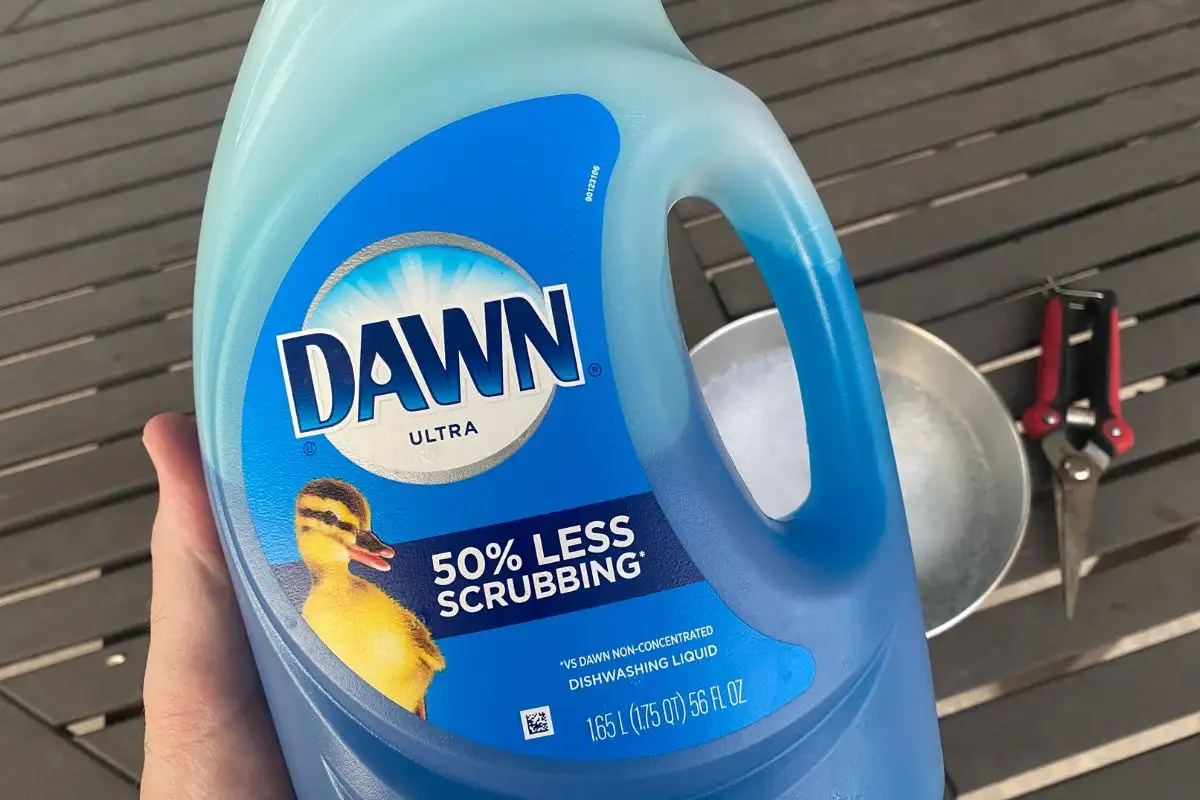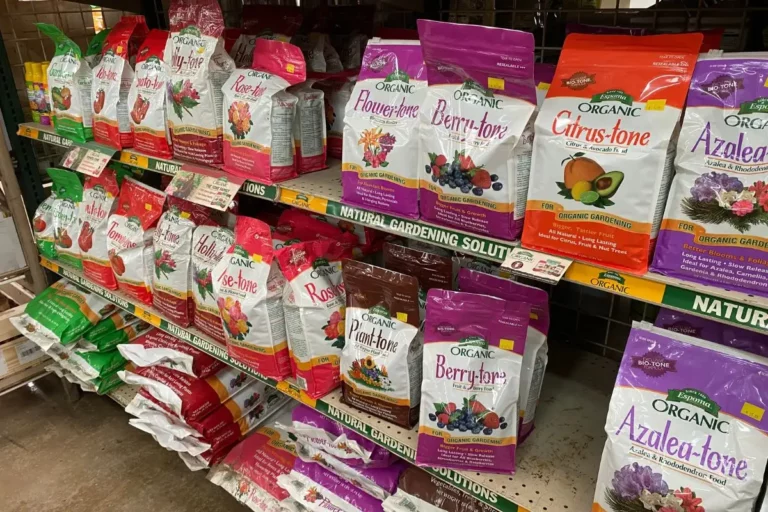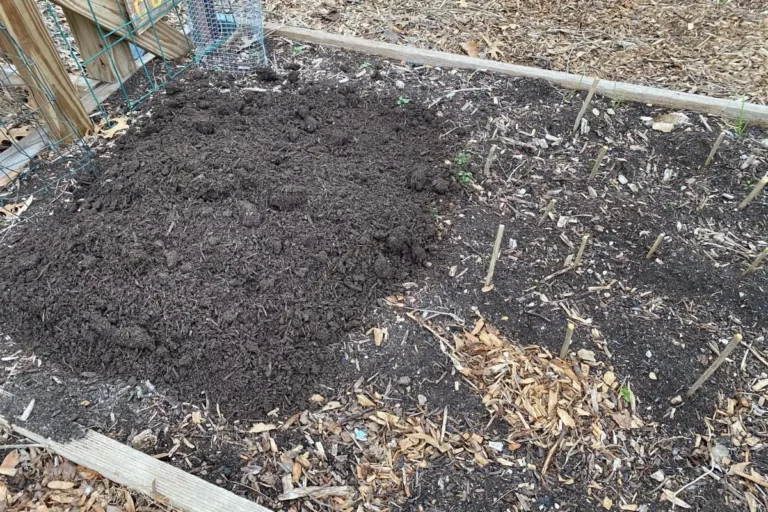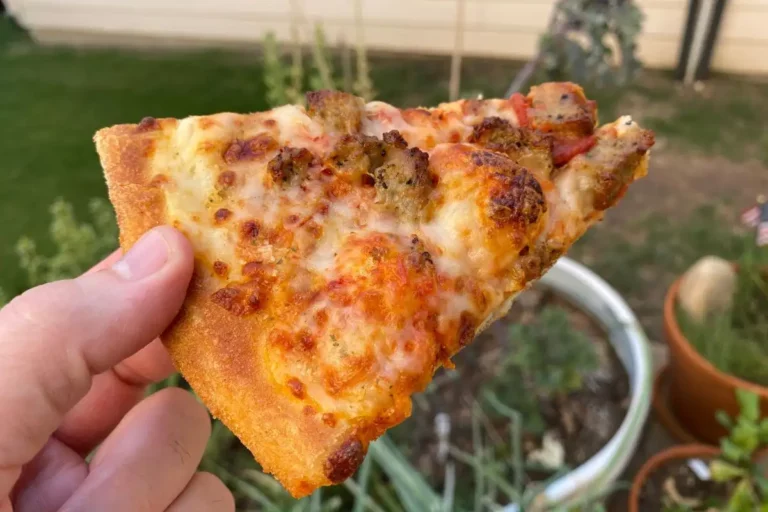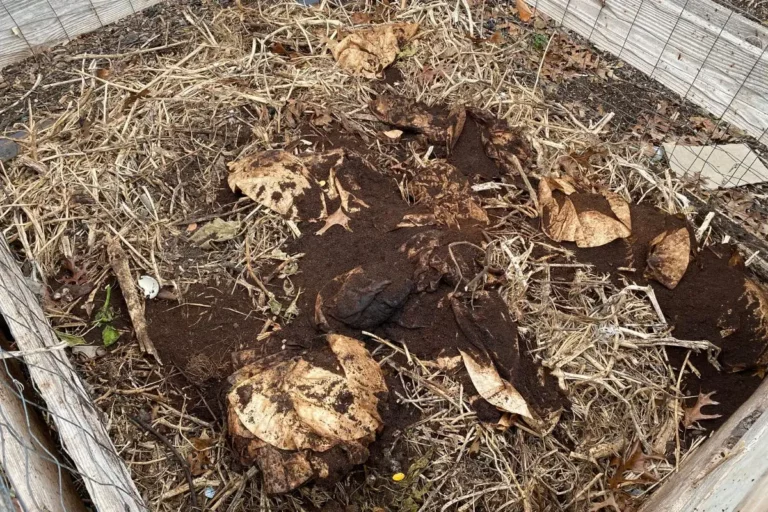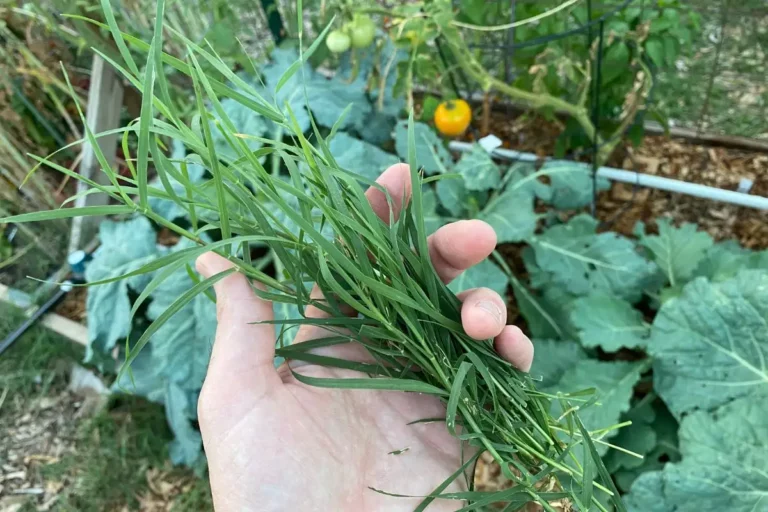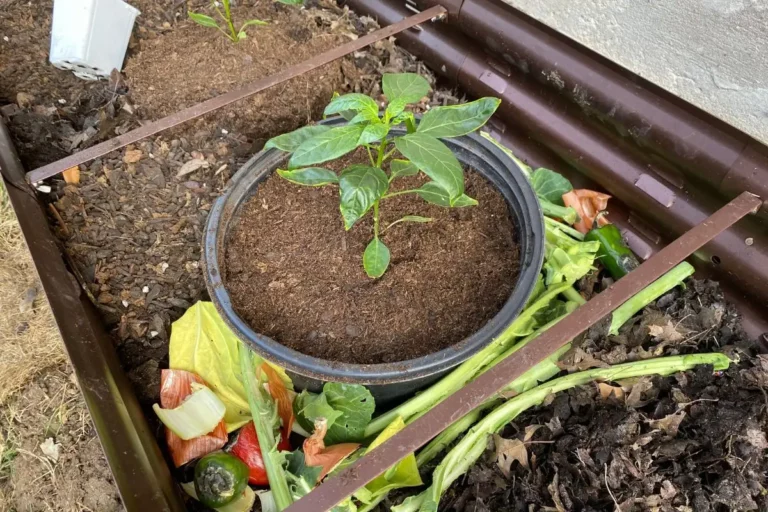Is Dawn Dish Soap Safe to Compost?
Turning yard waste and kitchen scraps into nutrient-rich soil amendments is one of the easiest ways to improve your garden.
And sometimes, when my compost pile appears a bit dry, I’ll add water to ensure things stay moist, which speeds up the composting process.
But what about leftover soapy water, specifically the water you’ve got left after you’ve hand-washed dishes with Dawn dish soap? Can you pour Dawn dish soap water on top of your compost pile to avoid dumping it down the drain?
Dawn dish soap isn’t a good addition to compost since its synthetic components might harm the beneficial microbes responsible for breaking down organic matter, thereby interfering with the natural composting process. Generally speaking, soapy water should be disposed of, not poured atop compost.
I understand the desire to reuse and recycle water instead of simply dumping it down the drain, but you’ve got to exercise some caution if you’re considering pouring soapy water on top of your compost.
This seemingly harmless act can actually be more harmful than beneficial, so in this article, I’ll touch on these key topics:
- The ingredients in Dawn dish soap and why it doesn’t belong anywhere near your compost.
- Reasons why you should generally avoid pouring any kind of soapy water on top of your compost pile.
- Recommendations for organic soaps that, when compared to Dawn dish soap, are much safer for your compost pile.
I love using soapy water in my garden—so much so that I’ve written an article about using soapy water to combat common garden pests—but I’m a bit careful when it comes to my compost since that’ll go straight into my garden beds when the time is right.
However, if you’re interested in using a much less abrasive soap and might consider switching from Dawn to more garden-friendly products, these are the brands I recommend:
Is Dawn Dish Soap Okay in Compost?
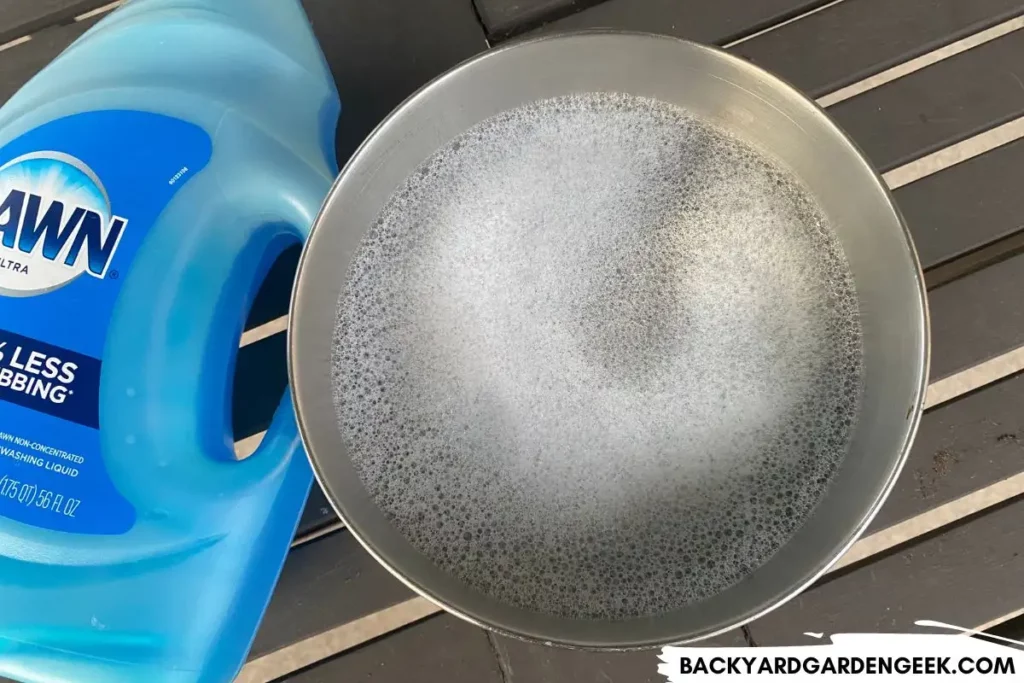
At first glance, pouring out soapy water onto your compost pile seems to serve a dual purpose—you can avoid pouring it down your drain while simultaneously keeping your compost pile from drying out too much.
That sounds good, right?
While it may seem convenient, this isn’t the best thing you can do for your compost pile.
In fact, although many gardeners recommend using Dawn dish soap in and around the garden (primarily for soapy water sprays), I think it’s best to avoid Dawn entirely.
Just keep it away from your garden since there are much better options, such as Dr. Bronner’s castile liquid soap and Mrs. Meyer’s biodegradable liquid hand soap.
Dawn dish soap does an excellent job of cleaning dishes, but it achieves this efficiency through a concoction of chemicals that I’d prefer not to introduce into my garden.
If you check out the ingredients list of Dawn dish soap, here’s what you’ll see:
- Alcohol Denat.: A solvent that helps strip oils and stabilize the formula.
- C9-11 Pareth-8: A surfactant of some kind.
- C10-16 Alkyldimethylamine Oxide: Yet another surfactant and cleaning agent.
- Chloroxylenol: An antibacterial agent.
- Colorants (Blue 1, Yellow 5, Red 33): Adds color to the product, giving it that deep blue look.
- Fragrances: Adds scents to the product. Not sure what “fragrances” actually entail from a chemical perspective.
- Glycerin: Acts as a viscosity adjuster. I’m not sure what exactly it “adjusts,” but it does something!
- Methylisothiazolinone: Acts as a preservative.
- PEI-14 PEG-24/PPG-16 Copolymer: A chemical cleaning agent.
- Phenoxyethanol: A solvent of some kind.
- PPG-26: Acts as a viscosity adjuster and solvent.
- Styrene/Acrylates Copolymer: An opacifier that makes the product opaque. Why is this needed? I have no idea.
- Phenoxy-Isopropanol: A solvent that enhances grease cutting.
- Propylene Glycol: Yet another solvent.
- Sodium Chloride: Adjusts viscosity and acts as a thickener.
- Sodium Cumene-Sulfonate: A process aid that stabilizes the formula.
- Sodium Hydroxide: A pH adjuster that balances the formula’s pH.
- Sodium Lauryl Sulfate: A surfactant and cleaning agent.
- Sodium Laureth Sulfate: Another surfactant and cleaning agent.
- Terpineol: And another solvent. (How many solvents does this soap have!)
- Tetrasodium Glutamate Diacetate: A water softener that helps with dirt removal.
- Water: Acts as a solvent and holds the other chemical ingredients together.
If your goal is to soften food particles and remove grease from dishes, Dawn’s many chemicals ensure that that’s as easy as possible.
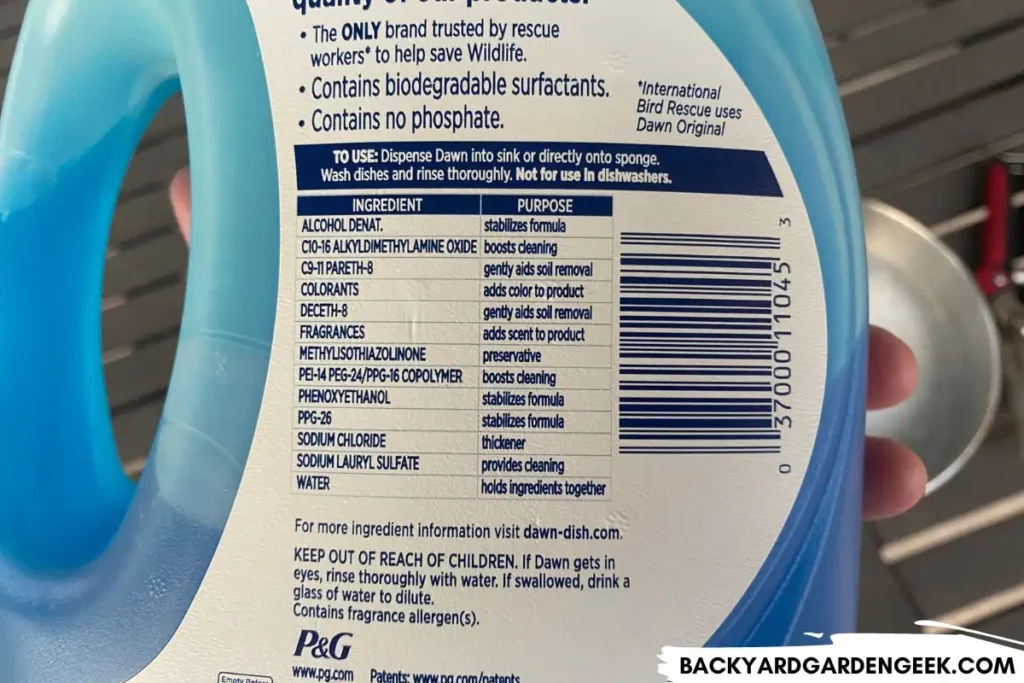
But what happens if you start introducing these chemicals into your compost pile…and eventually your garden?
I haven’t seen any research on this subject, but I think there’s a high likelihood that the synthetic components found in Dawn dish soap, especially those dedicated to breaking down grease and oils, could harm the beneficial microbes in your soil.
These tiny organisms are the lifeblood of your compost pile, breaking down organic matter into nutrient-rich compost. When exposed to these chemicals, there’s a good chance they might die off or become less effective, slowing down the composting process and reducing the overall quality of your compost.
Even though Dawn dish soap water doesn’t belong in your compost pile, here are a few suggestions for what you can do if you’d really like to reuse and recycle your soapy dishwater:
- Clean Patio Furniture: Dawn does an excellent job of cutting through grime and residue on outdoor furniture.
- Wash Your Car: It’ll get dirt off without messing up your paint job.
- Fight Stains on Clothing: It can be an effective pre-treatment for greasy stains.
- Clean Tools: You can scrub your gardening or workshop tools with it.
- De-Grease Your Hands: It’s excellent at removing grease, so if you’ve got some grease on your hands, this is a good first step to removing it.
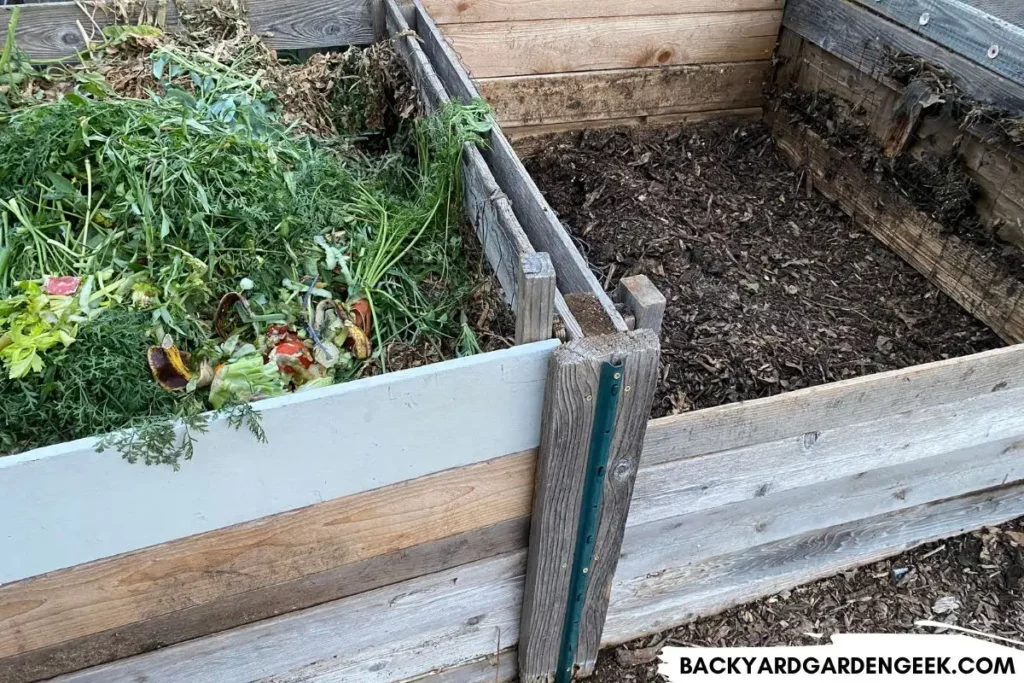
Simply put, I’m not one of those people that thinks Dawn should never, ever be used for anything, but I’d recommend never pouring soapy water on your compost pile or making soapy water sprays using Dawn dish soap.
You can easily purchase safe, biodegradable soaps, so stick with those when it comes to any gardening-related tasks.
What Soap Is Compost Safe?
As I just noted, there are plenty of alternatives to Dawn dish soap that are more natural and contain fewer synthetic chemicals, making them my preferred choice.
Castile soap, for instance, is a favorite of mine, as it’s not only excellent for creating soapy water sprays but is also versatile for general cleaning tasks.
Several other soap alternatives are readily available on Amazon and in retail stores. Here are a few that I’ve used over the past few years:
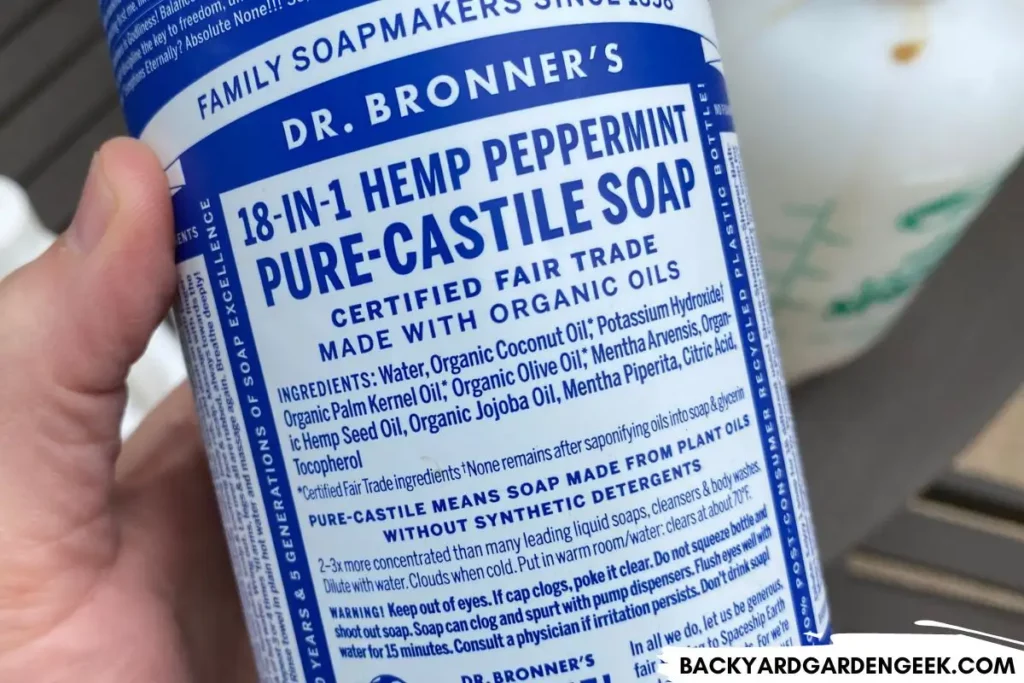
- Dr. Bronner’s Pure-Castile Liquid Soap: This soap is made from plant-based ingredients and is biodegradable. It’s my go-to soap for my insect-fighting soapy water sprays.
- Mrs. Meyer’s Liquid Hand Soap: This is a great all-around soap. I’ve used it in my kitchen and bathrooms and have made soapy water sprays with it as well.
- Seventh Generation Liquid Soap: This soap is plant-based and free of dyes and artificial fragrances.
Opting for these natural soaps, particularly castile soaps, comes with a host of advantages:
- They’re eco-friendly: Castile soaps are about as natural as you can get, meaning they’ll do fine in your garden.
- They’re gentle on plants and soil: These soaps lack harsh synthetic chemicals, meaning they’re safe for your plants and won’t harm beneficial microbes in your soil.
- They’re versatile: Castile soaps are multi-purpose. You can use them in your home or garden.
- They’re biodegradable: These soaps break down naturally over time, reducing their environmental impact.
- They’re non-toxic: Without synthetic chemicals or artificial fragrances, dyes, or preservatives, these soaps are about as safe as you can get.
For the healthiest compost pile possible, you’ll want to avoid synthetic chemicals. If you’re doing your dishes with Dawn dish soap, go ahead and either dump that soapy water down the drain or use it for one of the non-gardening purposes I noted above.
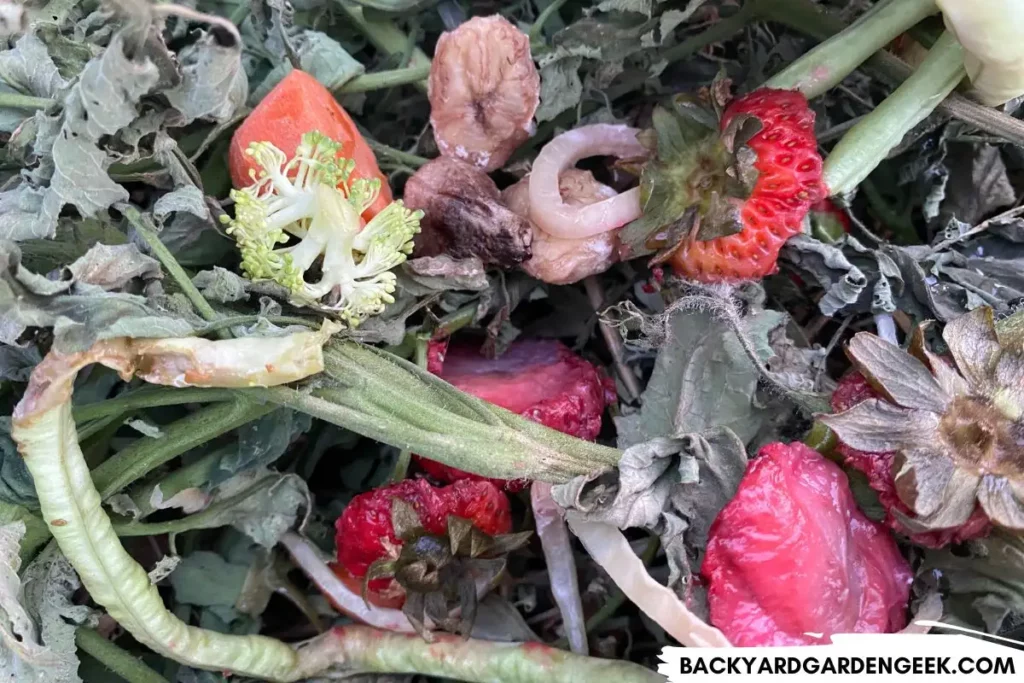
Further Reading
There’s a lot to consider when you’re just starting out composting. If you’d like to read other articles I’ve written about composting, take a look at these related posts:
- 50 Plants You Should Never Compost (and Those You Should)
- 50+ Cheap Nitrogen Sources for Your Compost Pile
- Composting Pizza Boxes: A Simple, Step-by-Step Guide
- Do Raised Beds Need Yearly Compost? (Here’s What to Do)
- Don’t Compost These Weeds (30+ Plants to Avoid)
- Filling Raised Beds with Just Compost: Should You Do It?
- Is Your Leftover Pizza Compost-Friendly?
- Should I Put Cardboard at the Bottom of My Compost Bin?
- What Goes at the Bottom of a Compost Pile?
